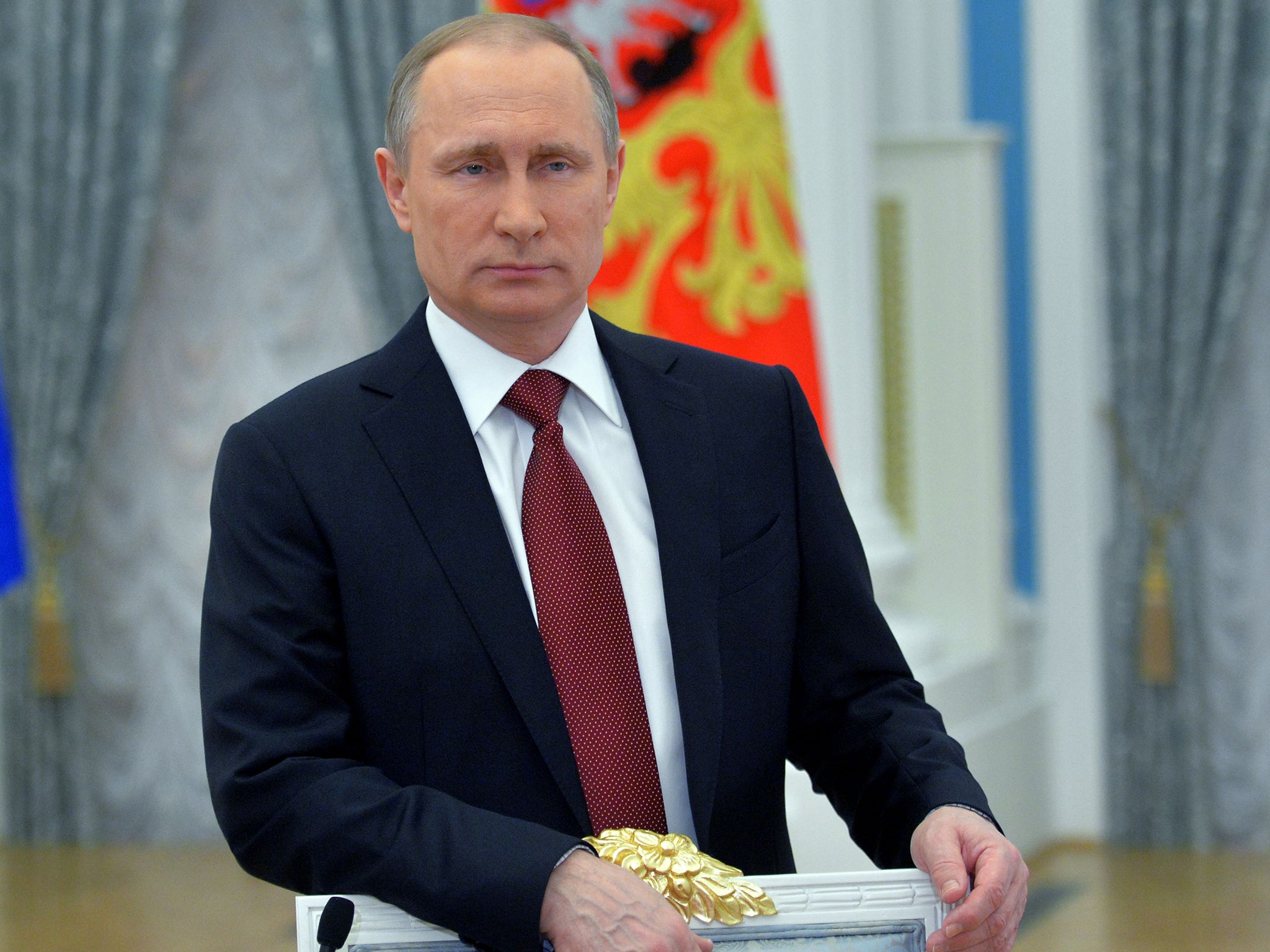Vladimir Putin says Brexit will have long-term 'traumatic effect' on UK and Europe
'We will see how they all put democratic principles into practice,' the Russian President said

Vladimir Putin has warned that the “traumatic effect” of Britain’s vote to leave the European Union will last a long time.
“What I would like to stress in this respect is that Brexit is the choice Britain’s people have made and we have not and will not interfere in this process,” the Russian President told a meeting of ambassadors and envoys.
“However, we will follow these developments closely of course, follow the talks between London and Brussels and the potential consequences for Europe and for all of us.
“It is clear that this referendum’s traumatic effect will make itself felt for a long time yet. We will see how they all put democratic principles into practice.”
Some European politicians have called for the UK to implement Article 50 and start the process of leaving the EU immediately but the move has not yet been debated in the Houses of Parliament.
The narrow margin in last week's vote sparked calls for a second referendum by Remain voters but the Prime Minister said the result was final and would be respected.
Speaking in Moscow on Thursday, Mr Putin noted that the EU was “not having an easy time right now” but predicted that instability in “rattled” markets would be resolved in the medium term.
Russia hopes to establish a “common economic and humanitarian space” in co-operation with Europe and will work with the next American President, whether Donald Trump or Hillary Clinton win the contest, he added.
Mr Putin also called for Russian diplomacy to take “a more active part” in current conflicts, including the Syrian civil war, as well as fighting terrorism and protesting national interests.
Brexit reactions – in pictures
Show all 10He hit out against a “growing barrage of information attacks unleashed against Russia” and said it would challenge the “Western media’s information monopoly”.
There has been speculation that the Russian President would relish the prospect of turmoil within the EU amid frosty relations over Ukraine and his intervention in support of Bashar al-Assad.
Speaking at the World Economic Forum last month, David Cameron said: “Who would be happy if we left? Putin might be happy, I suspect al-Baghdadi might be happy.”
Mr Putin responded by saying the claim had “no basis” and were an attempt to influence British voters ahead of the referendum on 23 June.
He slammed the Government’s approach to the election as “nothing more than overconfidence and a superficial approach to solving fateful decisions for one's country” following the shock vote for a Brexit.
Ties between Russia and the EU are at their lowest point since the Cold War after a series of sanctions and counter-sanctions over Moscow’s alleged role in the Ukraine crisis.
Subscribe to Independent Premium to bookmark this article
Want to bookmark your favourite articles and stories to read or reference later? Start your Independent Premium subscription today.

Join our commenting forum
Join thought-provoking conversations, follow other Independent readers and see their replies